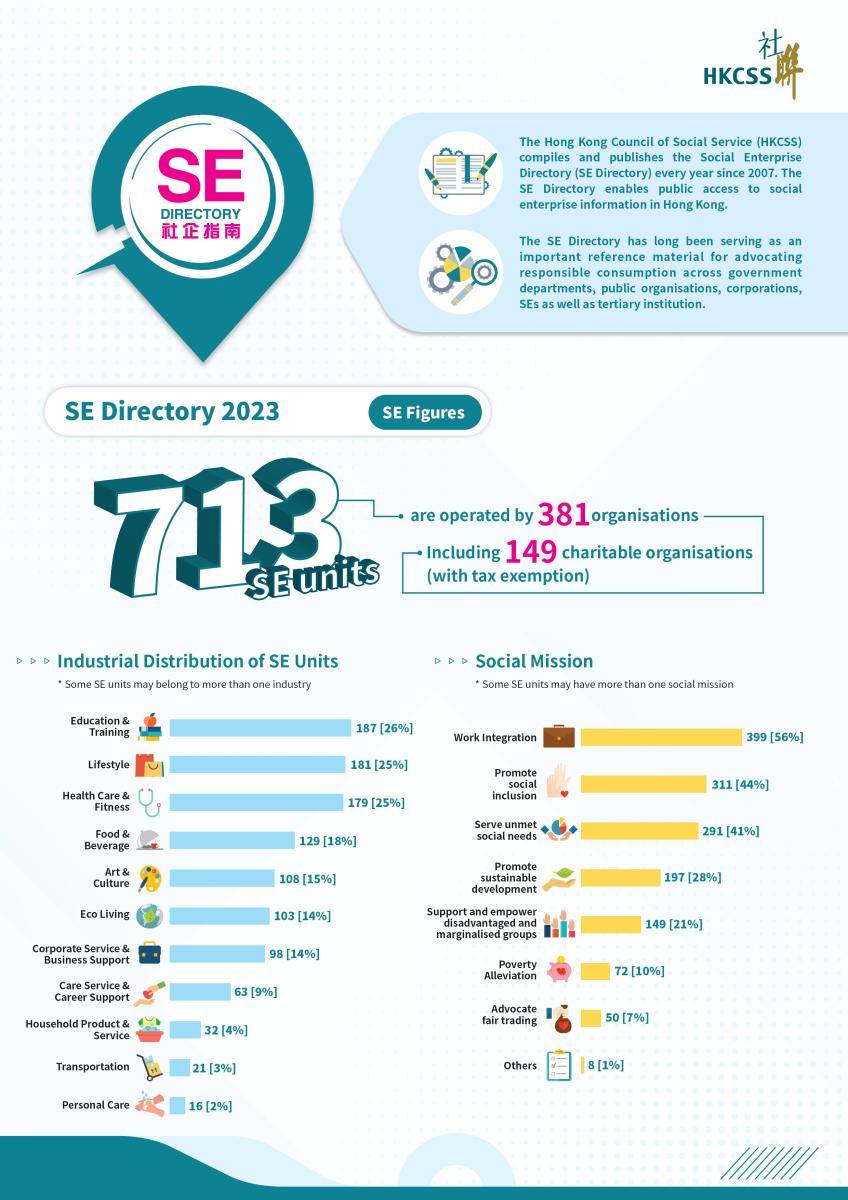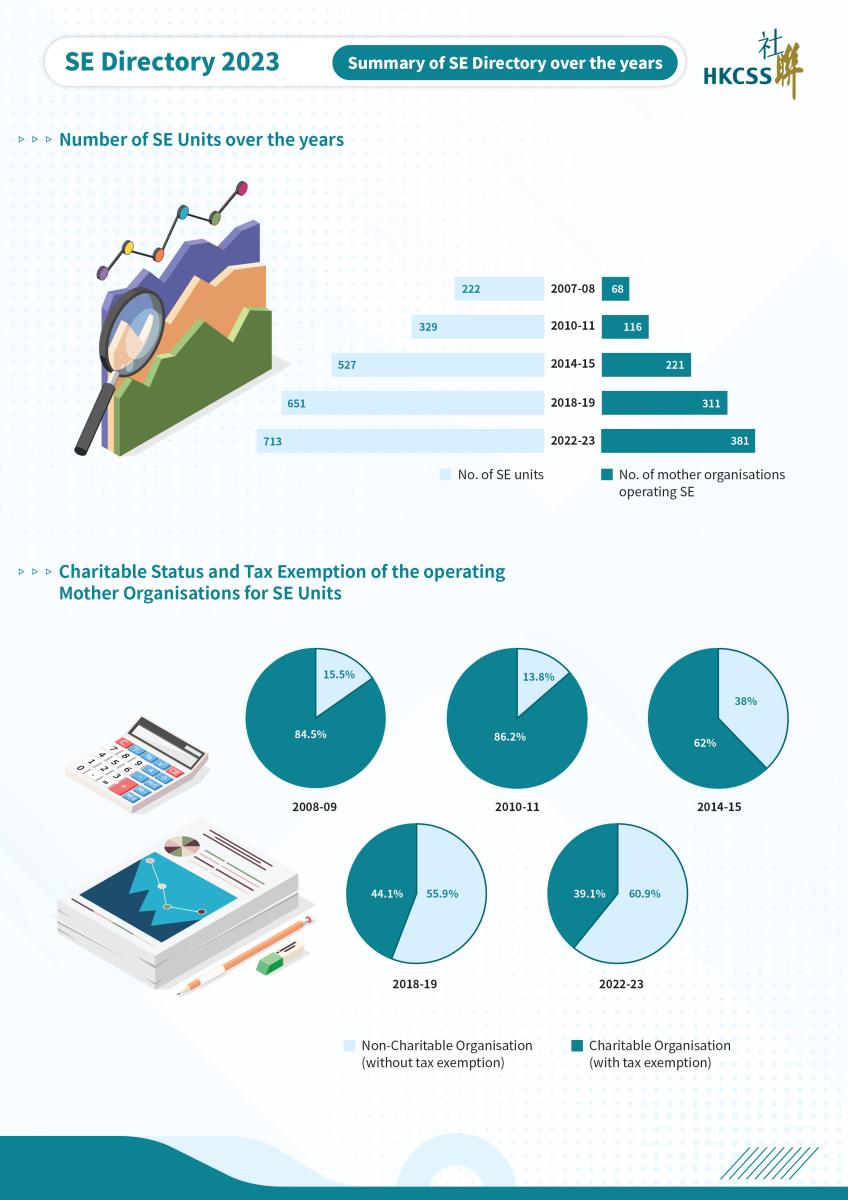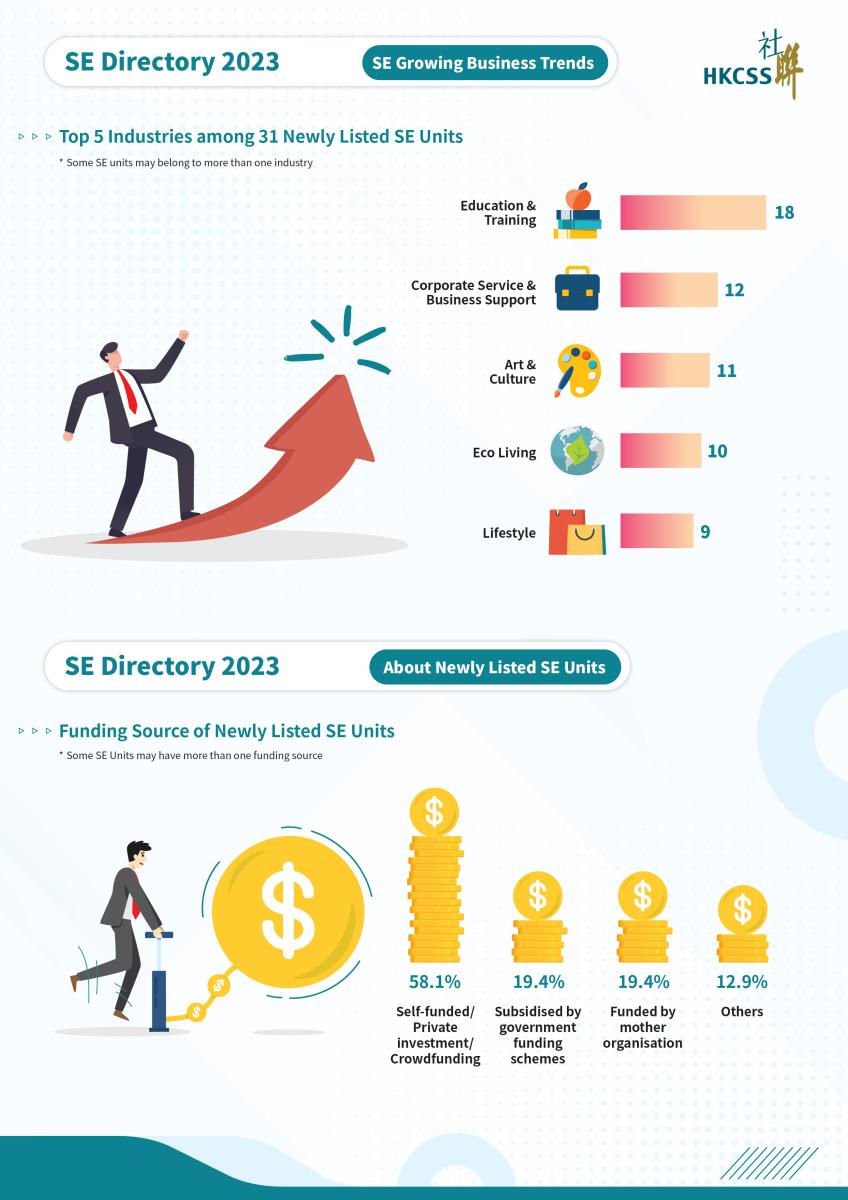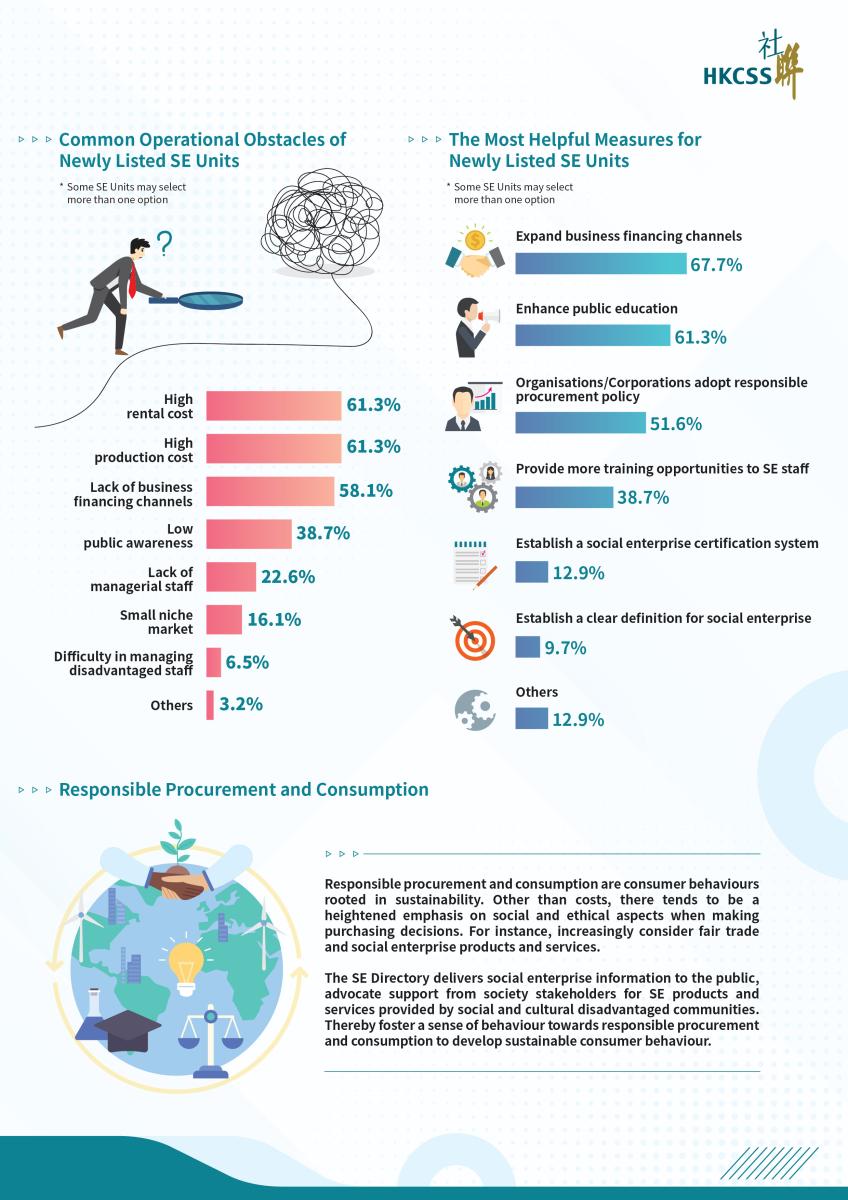The Social Enterprise Directory (SE Directory), managed by the Hong Kong Council of Social Service (HKCSS) since 2007, serves as a platform to connect local social enterprises (SEs) with customers and promote their products and services to a wider audience. As of April 2023, the directory listed 713 SE units operated by 381 organisations. Among these, approximately 60% were private entities, while the remaining consisted of charitable organisations exempt from tax under Section 88 of the Inland Revenue Ordinance. Over the years, the proportion of SE units operated by private entities has significantly increased from 15.5% at the earliest. This trend reflects a growing recognition among entrepreneurs that maximising profits for shareholders is not the sole objective, and contributing to the sustainability of society holds equal importance.
SE units strive to address social issues and improve the societal environment. According to the data, the most significant social issues they aim to tackle are 'Work Integration' and 'Social Inclusion,' aligning with Goal 8 ('Promote sustained, inclusive and sustainable economic growth, full and productive employment, and decent work for all') and Goal 10 ('Reduce inequality within and among countries') of the United Nations Sustainable Development Goals (SDGs). In other words, SE units endeavor to achieve their social mission while simultaneously contributing to the sustainable development of society.
Regarding the industrial distribution of SE units*, the top 5 categories are 'Education & Training,' 'Lifestyle,' 'Health Care & Fitness,' 'Food & Beverage,' and 'Art & Culture.' The top 5 categories among the newly listed SE units last year are almost the same, except that 'Corporate Service & Business Support' and 'Eco Living' have replaced 'Health Care & Fitness' and 'Food & Beverage.' This indicates a significant rise in SE units targeting the business-to-business (B2B) market or focusing on environmental issues.
Dr. Jessica TAM, the Business Director of HKCSS, stated, "The overall development of SEs in Hong Kong is gradually maturing. In the 1990s, most SE units were established by charitable organisations with primary goals of addressing poverty and unemployment. Since the new millennium, entrepreneurs have entered the SE sector, integrating technology, business, and innovative thinking to address various social needs, leading to numerous cross-sector collaborations. During the past decade, SE units have emphasised impactful community partnerships and social benefits, promoting the sustainability of Hong Kong while operating their own businesses. However, operating SE units in Hong Kong remains challenging. High rental and production costs, coupled with a lack of recognition and public education regarding SEs, hinder their expansion. That is why some enterprises and foundations have begun providing additional resources to support SE units, in addition to government support. HKCSS is delighted to see the participation of private enterprises. In the future, we hope that relevant policy bureaus and departments can collaborate with HKCSS and other organisations actively promoting the development of SE to formulate a blueprint for long-term development. This collaborative effort will enhance public awareness and acceptance of SE, enabling the implementation of diverse and impactful initiatives. By working together, we can create more effective solutions that facilitate sustainable development for society."
If you would like to know more about the latest SE figures, please refer to the infographics of SE Directory 2023 - SE Figures below (click to enlarge), or click here for downloading the full version.




